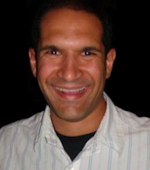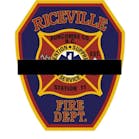Experts looked back on the 2009 ladder truck crash that took the life of a veteran Boston firefighter at the FDSOA Apparatus Symposium in Orlando, Fla., today, just ten days removed from the one-year anniversary of the tragedy.
Maintenance consultants Paul Lauria and Ralph Craven both gave presentations to attendees this morning at the Rosen Plaza Hotel, highlighting some of the issues that they say led to the fatal crash.
The collision took place on Jan. 9, 2009 in the Mission Hill neighborhood when Ladder 26 flew down a steep hill and crashed into a high-rise apartment building, killing 30-year veteran Lt. Kevin M. Kelley on impact.
Ladder 26 had a bad history, according to investigations following the incident. Two years before the incident it crashed into a building, but didn't result in serious injuries to firefighters. Nine days before the fatal collision, it crashed into a fence.
An investigation found that catastrophic brake failure was to blame for the crash and the department's apparatus maintenance division -- or lack there of -- was put under a microscope.
Lauria, president of Gaitherburg, Md.-based Mercury Associates, authored the report commissioned by the department that was released on March 6, 2009.
The report found there was no professional fleet manager or maintenance technicians, roles of the department's maintenance division members were not clearly defined, there was no effective vehicle inspection program and the division lacked a sense of ownership and responsibility for the apparatus.
"When I went into Boston, it was there for a two-day review. That is small by my standards, but that was what the department wanted," he said at the symposium. "I didn't have any agenda. I had no reason to do anything other than call it like I saw it."
Lauria spoke of the misconceptions he says some people have of fleet management.
"There was a certain segment of the Boston Fire Department that believed fleet management was not important."
He said some of its members were of the mindset that the fleet is a cost and not a profit producer and that they didn't understand its overall contribution.
Following the crash, Craven was contracted by the firefighters union to study the incident and said he was shocked by what he encountered. While in Boston, he helped inspect 12 other vehicles, which resulted in four more units being taken out of service.
The units were taken off the streets for faulty brake adjustments, the same issue he said plagued Ladder 26 and was due in part to firefighters adjusting automatic slack adjustors on the truck.
This finding led NIOSH to issue a safety alert regarding the practice.
Craven also said that the use of outside vendors also played a role.
"They were sending their trucks out to two or three vendors for brake jobs," he said.
Some of the repairs took four months to complete and in one instance, an entire year until the department got the unit back, the investigation found.
Several of the brake parts installed during the life of Ladder 26 were different than the part it originally came with. Craven said the changing in components reduced the brake force of the rear wheels by almost 50 percent.
When the truck's brakes were looked at following the crash, he said the front and right-rear brakes were out of adjustment and the left-rear brakes were not working.
He also noted that the brakes on the truck had not been worked on since March of 2008 and that there was no record of any service or repairs done to the air compressor.
During investigations such as this one, he is used to seeing a lot of documentation, but in this case, "we didn't even get a stack of papers more than three quarters of an inch high."
"Why do daily brake checks?," he asked the audience. "Safety. This was a safety issue."
"Luckily when they went down that hill, they had a green light. It could have been more catastrophic than it was."

Paul Peluso | Staff Writer
Paul Peluso is a Firehouse.com staff writer and has worked for the Web site since 2006. Previously, he worked as a reporter for several community newspapers located in the suburbs of Baltimore, Md. Since joining the newsteam, Paul has covered various fire service issues including fire sprinklers, grants, line of duty deaths and technology. While he started out at the Beltsville, Md. office, he has since moved to Florida where he works out of his home office in Tampa.





